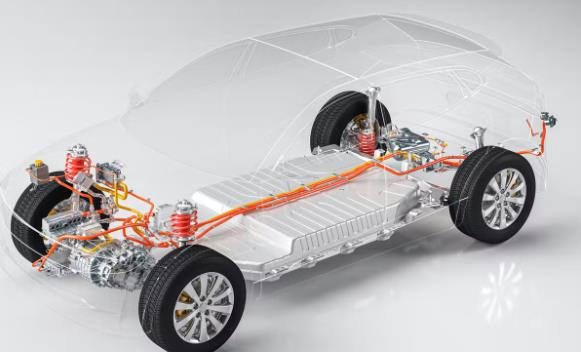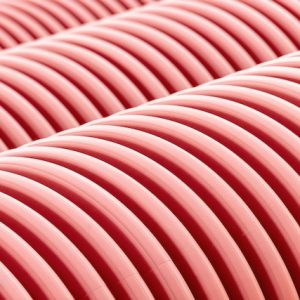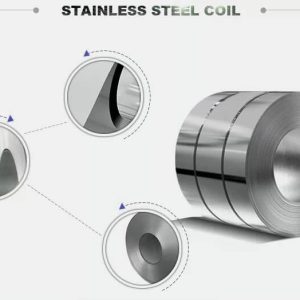By 2020, six companies will supply 87 percent of batteries and battery metals used in passenger EVs. By the end of the second half of 2020, Tesla alone will have deployed 22.5 gigawatt-hours of battery capacity, more than the combined total of its nearest competitors. This surge in demand has put unprecedented pressure on the supply chains for battery-materials, leading to a spike in prices for lithium, nickel, and other six materials.
GS Yuasa
GS Yuasa, a Japanese company, plans to increase its lithium-ion battery production by up to 500%, and the company is already in a joint venture with Mitsubishi Motors, which is planning to introduce an electric car, the i-MiEV, in Japan next year. Both companies are working to get ahead of the competition and have plans to produce the most advanced batteries for EVs.
GS Yuasa is the largest battery manufacturer in Japan and a leader in developing power solutions for vehicles. Its lithium-ion batteries are used to power the International Space Station and a manned research submersible, “the Shinkai6500,” as well as a variety of marine and rail applications. GS Yuasa also manufactures batteries for consumer electronics, such as the iPhone, and is one of the world’s top lithium-ion battery manufacturers.
The company has also been involved in the creation of a hybrid battery plant that will serve about 20,000 hybrid cars each year. This plant has a different chemical composition than lithium-ion batteries, but it is still the most powerful solution available on the market. Its first phase has been delayed by several months due to the Covid-19 pandemic, and the second phase has been put on hold. As a result, the joint venture has had to slow its second phase of development due to a lack of defined electric vehicle infrastructure.

GS Yuasa’s lithium-ion batteries are a main component of Mitsubishi’s i-MiEV. Moreover, GS Yuasa’s lithium-ion batteries are used for a variety of industrial applications, including solar panels. The company also supplies batteries for the Mitsubishi i-MiEV and the Mitsubishi Outlander PHEV, and is a major supplier for both vehicles.
Panasonic
The Japanese giant is currently undergoing extensive renovations at its facility in Wakayama Prefecture to prepare for mass production of its next-generation EV batteries. The company hopes to start mass producing the battery cells in this location early this year, following various tests. As an automotive lithium-ion battery manufacturer, Panasonic possesses significant expertise in this area. Its production capacity stands at 36.1 GWh, making it the third-largest maker of battery cells for electric cars.
The company has more than 100 years of experience in battery manufacturing and is the world’s third largest supplier of EV batteries. According to Benchmark Minerals’ classification standards, Panasonic is a Tier 1 lithium-ion battery manufacturer, which means it produces batteries of the highest quality. Its production capacity is also the determining factor in market share. However, its products are also highly regarded by consumers.
The battery manufacturer has also been increasing its production of lithium-ion batteries in response to the surging prices of raw materials. In its recent quarter, Panasonic reported an operating profit of 73 billion yen, which was slightly lower than last year. The rising prices of raw materials, including lithium, could temporarily reverse a downward trend in battery costs. Meanwhile, the company’s lithium-ion batteries could be four to five times larger than Tesla’s 2170 cells. The bigger battery capacity could make it cheaper for Tesla to produce electric vehicles and would boost the range.
The company plans to begin mass production of its higher-capacity Tesla battery in March 2024. In addition to that, Panasonic is building its own battery production facility in Wakayama. This investment will enable it to create two more production lines and improve its structural capabilities. With these efforts, Panasonic is developing a new lithium-ion battery of 4,680 watt-hours, which is expected to double the size of current batteries. Ultimately, this new battery will decrease cost and increase the range of Tesla electric cars by over 15%.
LG Chem
With years of experience in chemicals and materials science, LG Chem is poised to become one of the leading battery manufacturers for electric cars. The company has more than 400 engineers in South Korea working on all aspects of materials science. The company also has long-term contracts with many major carmakers, including General Motors Co. and Geely Automobile Holdings Ltd., which have stakes in battery manufacturing plants.
The company is working to reduce its overhead in the electric car battery business, which can cost up to $2 billion to build. The company is also in a good position to benefit from the eventual rebound in global auto demand and the increasing adoption of EVs. It will spin off the battery business in December to take advantage of the rising interest in electric cars. The company uses cookies to analyze how people use its website and how they interact with its products and services. According to its Cookie Policy, you can control your privacy settings on its website.
The company is investing billions of dollars in the EV market. In addition to developing new technologies, the company is expanding its battery manufacturing capacity. Its Holland, Michigan factory is capable of producing up to 50,000 battery packs a year. This new facility is about the same size as LG Chem’s current Holland plant, which produces battery packs for Chevy Volt and the upcoming Bolt.
With the price of battery technologies advancing at an accelerated pace, the company is hoping to entice consumers to switch to electric vehicles. This could make it easier for automakers to produce competitive electric vehicles. Eventually, the cost per kWh will drop to $20 billion, and EV battery prices will be able to compete with gasoline and diesel vehicles. In the meantime, LG Chem is one of the top battery manufacturers for electric cars.
SK On
SK On is a battery division of SK Innovation, which spun off from the parent company in October 2021. It is one of the top battery manufacturers for electric cars, with a 5.6 percent global market share. As of April 2019, SK On had invested over $2.6 billion in Georgia. In 2017, it produced over 17GWh of battery capacity. The company is planning to double that by 2030.
The investment will be used to build two battery factories in North America in cooperation with Korean battery manufacturer SK Innovation. This will cost SK $11.4 billion, but Ford is funding the rest of the costs. Once the factories are operational, they will have the capacity to power 129 gigawatt hours of electricity a year in the U.S. alone, enough to power 1 million electric vehicles. By 2030, the partnership will account for half of the world’s EV production capacity.
SK innovation is part of the SK Group, one of the largest conglomerates in South Korea. It has more than 6,500 employees worldwide. Among its customers are Mercedes-Benz and Hyundai-Kia Motors. The Georgia Department of Economic Development and the Jackson County Development Authority have partnered with SK Innovation to facilitate the project. Its technology is based on a proprietary solid electrolyte and is said to be superior to lithium-ion batteries.
In March, SK innovation broke ground on its first manufacturing plant in Georgia. The company plans to invest $2.6 billion in the project and create more than 2,000 jobs. The first plant is expected to start production in 2021, with mass production starting in 2022. The second plant will be operational by 2023. The Georgia investment is expected to help the state develop its EV industry. And with the growing popularity of electric vehicles, SK innovation has been able to capitalize on this opportunity.
Northvolt
While Europe has gone mainstream with electric cars, it has lacked batteries. In fact, nearly one-fifth of new car purchases in the UK were electric cars last month. But the Swedish startup Northvolt is hoping to change that. The company is one of several new factories that will be manufacturing lithium ion batteries, and investors hope they will give Europe a bigger slice of the electric vehicle market than China.
The Swedish company recently announced it will build a second battery factory near its main factory in Torslanda. It will use waste water from a local treatment facility to cool the facility, and the heated water will go into district heating for the community. It has also acquired a former paper mill in Sweden and plans to produce cathode materials there. Its latest funding round attracted over $6.5 billion in investments. Volkswagen and Goldman Sachs led the round, and new investors included Swedish pension funds and the Canadian Pension Plan OMERS. In addition to this, Baillie Gifford also invested in the venture.
The company is also expanding in Germany, with plans to build a third battery factory in Heide, Schleswig-Holstein. This new factory will produce 60 gigawatt-hours of batteries annually, enough to power one million electric cars. It is expected to start producing batteries in 2025, and three thousand jobs will be created in the process. It is hoped that Northvolt Drei will be able to meet demand for lithium-ion batteries in continental Europe.
Another company that is trying to become one of the top battery manufacturers for electric cars is Northvolt. Its “gigafactory” in Germany is backed by the German government and Volkswagen, and is expected to produce enough battery cells for one million electric cars annually. The company expects to produce 60 gigawatt hours of lithium-ion batteries a year, which is more than enough to power more than one million electric cars.



